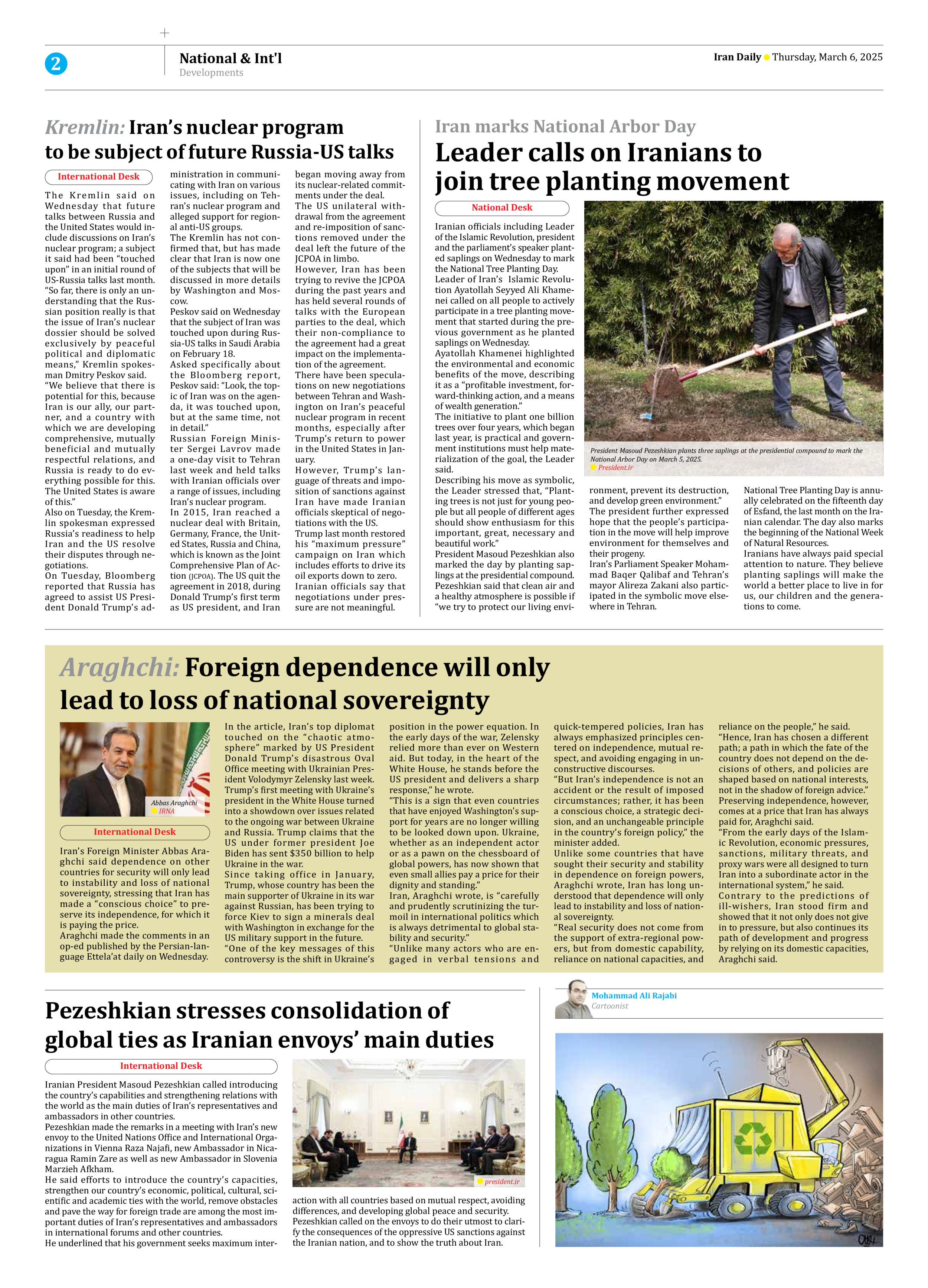
Kremlin: Iran’s nuclear program to be subject of future Russia-US talks
The Kremlin said on Wednesday that future talks between Russia and the United States would include discussions on Iran’s nuclear program; a subject it said had been “touched upon” in an initial round of US-Russia talks last month.
“So far, there is only an understanding that the Russian position really is that the issue of Iran’s nuclear dossier should be solved exclusively by peaceful political and diplomatic means,” Kremlin spokesman Dmitry Peskov said.
“We believe that there is potential for this, because Iran is our ally, our partner, and a country with which we are developing comprehensive, mutually beneficial and mutually respectful relations, and Russia is ready to do everything possible for this. The United States is aware of this.”
Also on Tuesday, the Kremlin spokesman expressed Russia’s readiness to help Iran and the US resolve their disputes through negotiations.
On Tuesday, Bloomberg reported that Russia has agreed to assist US President Donald Trump’s administration in communicating with Iran on various issues, including on Tehran’s nuclear program and alleged support for regional anti-US groups.
The Kremlin has not confirmed that, but has made clear that Iran is now one of the subjects that will be discussed in more details by Washington and Moscow.
Peskov said on Wednesday that the subject of Iran was touched upon during Russia-US talks in Saudi Arabia on February 18.
Asked specifically about the Bloomberg report, Peskov said: “Look, the topic of Iran was on the agenda, it was touched upon, but at the same time, not in detail.”
Russian Foreign Minister Sergei Lavrov made a one-day visit to Tehran last week and held talks with Iranian officials over a range of issues, including Iran’s nuclear program.
In 2015, Iran reached a nuclear deal with Britain, Germany, France, the United States, Russia and China, which is known as the Joint Comprehensive Plan of Action (JCPOA). The US quit the agreement in 2018, during Donald Trump’s first term as US president, and Iran began moving away from its nuclear-related commitments under the deal.
The US unilateral withdrawal from the agreement and re-imposition of sanctions removed under the deal left the future of the JCPOA in limbo.
However, Iran has been trying to revive the JCPOA during the past years and has held several rounds of talks with the European parties to the deal, which their non-compliance to the agreement had a great impact on the implementation of the agreement.
There have been speculations on new negotiations between Tehran and Washington on Iran’s peaceful nuclear program in recent months, especially after Trump’s return to power in the United States in January.
However, Trump’s language of threats and imposition of sanctions against Iran have made Iranian officials skeptical of negotiations with the US.
Trump last month restored his “maximum pressure” campaign on Iran which includes efforts to drive its oil exports down to zero.
Iranian officials say that negotiations under pressure are not meaningful.







